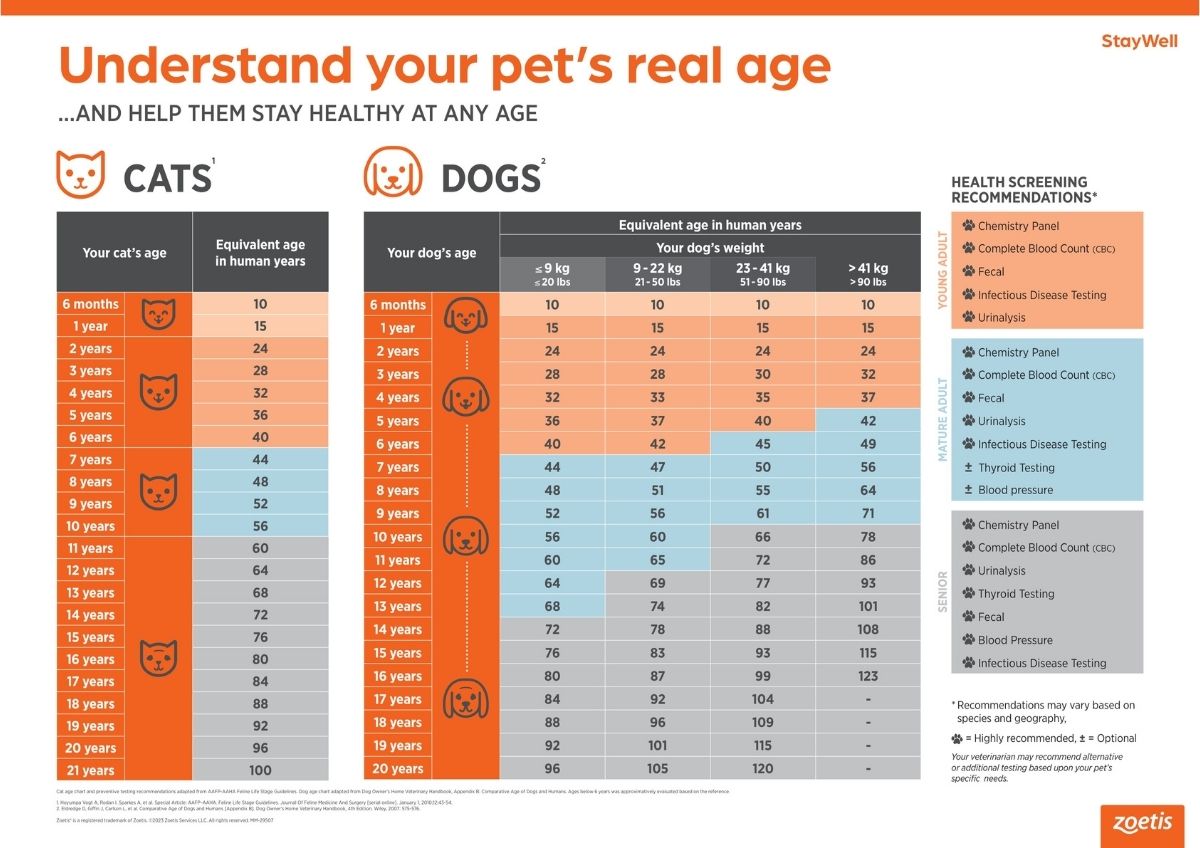Whether your pet has grown old alongside you or joined your family later in life, their comfort and health become top priorities as they enter their golden years. Just like us, pets experience age-related changes that require special attention to ensure their quality of life remains the best it can be for years to come.
Common Age-Related Changes & How to Support Your Pet
Arthritis & Mobility Issues
- Keep your pet at a healthy weight with a balanced diet and low-impact exercise.
- Ask your veterinarian for personalized dietary advice as there’s no one-size-fits-all “senior” food.
- Consider therapeutic options like laser therapy, acupuncture, joint supplements, or physical therapy to reduce pain and stiffness.
- At home, use pet ramps, non-slip rugs, and toe grips. For cats, choose litter boxes with low sides for easier access.
Learn more about Arthritis in Pets →
Dental Health
- Prevention is best! We recommend brushing your pet’s teeth daily and having regular COHATs (Comprehensive Oral Health Assessment and Treatment) as advised by your veterinarian.
- If eating dry food is uncomfortable, your vet may recommend switching to a softer or wet diet, especially if your pet isn’t a good candidate for a COHAT procedure.
Read more about Dental Care →
Organ Function & Preventive Care
As pets age, their kidney, liver, and heart functions may begin to decline. Senior cats, in particular, are prone to kidney disease—about 80% of cats over age 15 are diagnosed with chronic kidney disease (CKD).
Regular wellness exams and lab work can help detect these issues early and allow for better management.
Learn more about Heart Disease and Kidney Disease →
When to Call the Vet
While slowing down is a normal part of aging, some changes can indicate underlying health problems.
Contact us if you notice:
- Persistent pain (restlessness, vocalizing, hunching) despite treatment
- Trouble standing, walking, or climbing
- Loss of interest in food, treats, or activities
- Hiding, withdrawal, or sudden behavior changes
- Confusion or disorientation
For cats specifically:
- Poor grooming, dull or matted coat
- Litter box accidents or avoidance
If you notice any of these signs, don’t wait; give us a call or schedule a visit online.
Additional Resources:
- Caring For Your Senior Dog and Cat
- Acupuncture at DePorre
- Laser Therapy
- Monitoring Your Dog and Cats Quality of Life
November online pharmacy coupons:
15SPOOKYSALE | Save 15% on the entire order | Valid 10/21/25 - 11/3/25
15PAWS | Save 15% on the entire order | Valid 11/4/25 - 11/17/25
FALLTREAT | Save 15% on the entire order | Valid 11/18/25 - 12/1/25

